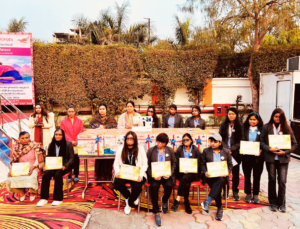India’s trade reforms must deepen trust, digitalisation, and compliance to unlock manufacturing potential and global competitiveness.

Efficiency thrives where trust and transparency lead
Swadeshi call and growth mindset
India stands at a pivotal moment in its economic journey. In his national address on September 21, 2025, the Hon’ble Prime Minister called for a renewed commitment to ‘Swadeshi, ’a rallying cry to support Indian manufacturing and the MSME sector. This is more than a slogan; it marks an inflection point for the nation’s trade and industrial landscape.
History affirms that every developed economy has progressed by embracing efficiency and productivity. For Bharat to follow suit, we must reorient the mindset of growth among trade and statutory agencies. This transformation demands extensive training, benchmarking, and a culture of sincerity, anchored in compliance and accountability.
Reforms driving efficiency
India’s import-export logistics sector has undergone rapid evolution. Initiatives like Direct Port Delivery (DPD), Turant Customs, faceless assessment, and electronic duty payments have streamlined clearance processes, aligning them with global standards. These reforms have significantly boosted transparency and speed.
The Central Board of Indirect Taxes and Customs (CBIC) and the Ministry of Commerce have played a pivotal role in enhancing India’s Ease of Doing Business index. Digitalisation, particularly through AI-driven customs clearance, has fostered a compliant trade environment. The introduction of GST has further simplified taxation and accelerated goods movement across the country.
CBIC’s rollout of e-bonds, online permission modules, and simplified amendment processes has fortified the system. Yet, the next leap forward requires nurturing a trust-based working environment, one where industry and government collaborate with mutual respect and shared goals.
Trust as a growth catalyst
For India to mature into a developed economy, trust between the regime and industry must be foundational. Trade players must uphold compliance rigorously, enabling statutory bodies like Customs, GST, and Income Tax to introduce further facilitation measures.
Industry representations have rightly urged that legal interpretations not be treated as violations. Instead, contrary findings should be resolved through consultative, not investigative, mechanisms. This approach has already helped the government recover substantial revenue previously locked in litigation.
A consultative, trust-driven framework will reduce disputes and foster a growth-orientated atmosphere for trade and industry.
Streamlining EXIM compliance
Export-import logistics in India demands adherence to a wide array of compliances beyond customs tariffs and foreign trade policies. These include BIS, LMR, EPR, WIR, FSSAI, Plant and Animal Quarantine, Atomic Energy Regulatory Board, and telecom licensing, among others.
To simplify this complex landscape, trade bodies are actively engaging with ministries to develop a digital portal for approvals and monitoring. Such a system will be a landmark reform, enabling transparent, efficient compliance and empowering exporters to tap global markets more effectively.
Sectors like electronics, defence, chemicals, pharmaceuticals, and agriculture are poised for growth. To harness this potential, MSMEs must be supported through targeted handholding and a dedicated cell focused on their development.
Export control and global integration
As India deepens its role in high-tech manufacturing and global supply chains, export control becomes a vital component of trade facilitation. Managing sensitive materials and dual-use goods with full responsibility is essential to maintaining global trust and compliance.
Logistics as a growth enabler
Efficient logistics is the backbone of India’s manufacturing ambitions. FFFAI has worked closely with the government to implement facilitation measures that include:
- Transparency and predictability in customs processes
- Defined timelines for import-export clearance
- Full digitalisation with zero paperwork
- Expansion of Authorised Economic Operator (AEO) and Status Holder programs
- Dispute resolution mechanisms to reduce litigation
- Skill development for youth and women to create first-time employment
- Entrepreneurship support for MSMEs and startups
These measures are not just operational improvements; they are strategic enablers of national growth.
Bharat’s path forward
India’s fundamentals for growth are strong. Trade facilitation must reach the grassroots, empowering MSMEs and startups to become engines of prosperity. With trust, digitalisation, and compliance as guiding principles, Bharat is poised to thrive sustainably in the global arena.
विजय विश्व तिरंगा प्यारा, झंडा ऊँचा रहे हमारा
By Dushyant Mulani, Immediate Past Chairman, Federation of Freight Forwarders’ Associations in India (FFFAI)











